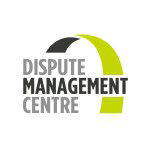ProMediate has set up a new dispute management service with the Greater Manchester Chamber of Commerce. This comes at a time of great change when the focus of litigation is going to change towards problem solving rather than adversarial arguments.
Problem to be solved
In a speech to the University of Bolton the President of Tribunals has predicted changes to the Court and tribunal system. He said that it “works like this. Change your view of litigation from an adversarial dispute to a problem to be solved. All participants, the appellant, the respondent… the tribunal judge, are able to iterate and comment upon the basic case papers online, over a reasonable window of time, so that the issues in dispute can be clarified and explored.
There is no need for all the parties to be together in a court or building at the same time. There is no single trial or hearing in the traditional sense. Our new approach is similar to that already used in other jurisdictions, where the trial process is an iterative one that stretches over a number of stages that are linked together. In our model, however, we will not need those stages to take place in separate hearings or indeed, unless it is necessary, any physical, face to face hearing at all. We will have a single, digital hearing that is continuous over an extended period of time.
Again, and similar to the practice in other countries and the traditional approach of the tribunals, the judge will take an inquisitorial and problem-solving approach, guiding the parties to explain and understand their respective positions. Once concluded, this iterative approach may allow the judge to make a decision there and then, without the need for a physical hearing; the traditional model to which the system defaults at present. If such a ‘hearing’ is required, for example to determine a credibility issue, technology could facilitate that too. It may be a virtual hearing.”
Early Neutral Evaluation
He anticipates that judges in future will “help facilitate effective triage of claims so that each claim is allocated to the right process, and the litigants are given appropriate support to move towards an appropriate resolution. It will also enable far greater use of a so far under-utilised dispute resolution technique: early neutral evaluation.
In broad terms, the idea is simple. At an early stage of any claim, the parties outline their claim to a neutral third party, who then gives an assessment of the merits of the claim. The assessment is not binding (although the possibility always exists for the parties to agree to be bound by it). In general, the assessment is a means – and in many cases an effective one – to enable the parties to approach a settlement negotiation having received an objective, neutral view on the strengths and weaknesses of their respective positions. If the claim does not settle, and it proceeds to trial, the individual who carried out the assessment has no further role to play.
ENE is found in the family justice system, where it is known as Family Dispute Resolution. It has been around in the Commercial Court, the Admiralty Court and Technology and Construction Court for some time now, and more recently the High Court’s Chancery Division has started to promote its use. The greater use of skilled Registrars, case officers, and fee-paid judges, ought to enable ENE to become an embedded part of the system, assisting parties to properly assess their positions. In so far as it promotes settlement, it secures a benefit to the parties through early resolution of their dispute. It equally enables the more efficient use of judicial resources, by enabling them to be concentrated on those claims that genuinely cannot be resolved consensually. And where the claim doesn’t settle, it facilitates better use of both court and party resources, promoting better case management by enabling the parties to narrow the issues in dispute.


